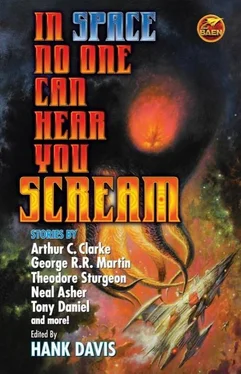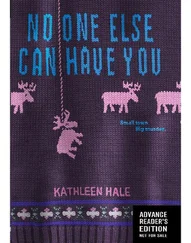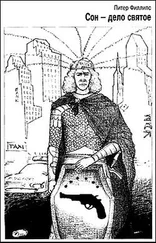Питер Филлипс - In Space No One Can Hear You Scream
Здесь есть возможность читать онлайн «Питер Филлипс - In Space No One Can Hear You Scream» весь текст электронной книги совершенно бесплатно (целиком полную версию без сокращений). В некоторых случаях можно слушать аудио, скачать через торрент в формате fb2 и присутствует краткое содержание. Город: Riverdale, NY, Год выпуска: 2013, ISBN: 2013, Издательство: Baen Books, Жанр: Фантастика и фэнтези, на английском языке. Описание произведения, (предисловие) а так же отзывы посетителей доступны на портале библиотеки ЛибКат.
- Название:In Space No One Can Hear You Scream
- Автор:
- Издательство:Baen Books
- Жанр:
- Год:2013
- Город:Riverdale, NY
- ISBN:978-1-4516-3941-4
- Рейтинг книги:4 / 5. Голосов: 1
-
Избранное:Добавить в избранное
- Отзывы:
-
Ваша оценка:
- 80
- 1
- 2
- 3
- 4
- 5
In Space No One Can Hear You Scream: краткое содержание, описание и аннотация
Предлагаем к чтению аннотацию, описание, краткое содержание или предисловие (зависит от того, что написал сам автор книги «In Space No One Can Hear You Scream»). Если вы не нашли необходимую информацию о книге — напишите в комментариях, мы постараемся отыскать её.
In Space No One Can Hear You Scream — читать онлайн бесплатно полную книгу (весь текст) целиком
Ниже представлен текст книги, разбитый по страницам. Система сохранения места последней прочитанной страницы, позволяет с удобством читать онлайн бесплатно книгу «In Space No One Can Hear You Scream», без необходимости каждый раз заново искать на чём Вы остановились. Поставьте закладку, и сможете в любой момент перейти на страницу, на которой закончили чтение.
Интервал:
Закладка:
Still here? Those are really neat stories you could be reading, you know? (Well, maybe except for one—something about a shadow.) I’m sure you didn’t buy the book so that I could pontificate on old, er, vintage movies and TV shows. But I’ll continue.
I may be focusing too strongly on movies and TV, even if most of the population get their impression of the sacred literature from the big and little screens. In the realm of the written word, there were all the covers of paperbacks of the 1950s and 60s, and even some of the hardcover dust jackets, on which anonymous and underpaid copy writers inscribed misleading descriptions. Their favorite word to use, of course, was “prophetic” (though sf is not, of course, prophecy), but the second, third, etc., most popular words with the cover copy writers were “frightening,” “terrifying” (that one was on the front cover of an early paperback of Orwell’s 1984 ), “horrifying,” and so on. Maybe those copy writers were seeing the aforementioned movies.
And, let us finally admit, there have been literary crossovers between sf and horror, and this goes back to the beginnings of the genre. Carmilla and Dracula weren’t science fiction, but Frankenstein was. Stories about ghosts and werewolves weren’t science fiction (at least until Jack Williamson wrote “Wolves of Darkness” and Darker Than You Think ), but Strange Case of Dr. Jekyll and Mr. Hyde was. The War of the Worlds can be read as a horror story—certainly, the first appearance of the tentacled Martians is meant to be frightening—and as far as Universal Pictures was concerned, Wells’ The Invisible Man was definitely a horror story, even if the eponymous character never went on to meet Dracula or the Wolf Man. Almost everyone agrees that John W. Campbell’s greatest story is “Who Goes There?”—and it’s also one of the greatest horror stories in or out of science fiction. A bit earlier, H. P. Lovecraft, whose influence on the horror genre is incalculable, would introduce his Cthulhu mythos (though I believe he never called it that) in which the universe is a downright terrifying neighborhood, and unspeakable horrors, the very sight of which drives humans insane, have come to Earth from space in the distant past and still drop in unexpectedly, and will someday take the planet away from the pathetic humans who thought they ruled it.
Of course, though Lovecraft’s critters came from outside the Earth, Lovecraft himself never set any of his stories off the planet. That left possibilities open for other writers. Instead of waiting for nameless eldritch alien horrors to come to us, why don’t we go to them? And many writers sent their characters out to do just that. (What some of those characters might have thought about it is conjectural, of course, particularly with those who were never heard from again.)
So here’s a selection of stories old and new, three from the grand old days of the pulp magazines early in the last century, three new ones appearing here for the first time, and an assortment of blood-curdlers from the years in between, waiting for you to read them. You needn’t be so apprehensive, since sometimes the Thing from Outer Space doesn’t win. On the other hand . . . but you’ll have to read them to find out which stories are which. You are going to read them, surely . . .
I’m nearly finished now, and there’s nothing to keep you from the stories. In summary, science fiction isn’t scary all of the time, or even most of the time, but sometimes, as the immortal Mr. Fudd might put it, it’s vewwy, vewwy scawwy. John W. Campbell, the legendary science fiction editor, once wrote that science fiction stories are the dreams of a technological society such as ours. He also noted parenthetically that “some dreams are nightmares.”
Pleasant dreams.
—Hank DavisArthur C. Clarke
Through his distinguished career in science fiction, Sir Arthur C. Clarke (1917-2008) was known both for writing the hardest of hard science fiction stories and novels and also for visionary far-future stories showing the influence of Olaf Stapledon. But there were more sides to Sir Arthur, as in the humorous stories he collected in Tales from the White Hart , and in his being a fan of celebrated horror writer H.P. Lovecraft (“[H]is best stories were masterpieces in their genre,” Clarke wrote in a letter to fantasy master Lord Dunsany), which led to his writing, early in his career, “At the Mountains of Murkiness,” a Lovecraft parody. “A Walk in the Dark” is definitely not a parody, and starts out apparently in Clarke’s best hard science vein, but gradually takes a sinister turn. A distinguished science fiction editor once wrote that the first story she read by Clarke, when she was very young, was this one, and it frightened her so much that it was years before she could bring herself to read anything else with his name on it. Of course, the typical reader isn’t going to grow up to be an editor, and can probably handle this story. Right after they make sure all the lights are on and check the batteries in their flashlight . . .
Known for being one of the “Big Three” writers of modern science fiction (with Robert A. Heinlein and Isaac Asimov), co-author of and technical advisor for the now-classic movie, 2001: A Space Odyssey , author of many best-selling novels, commentator on CBS’s coverage of the Apollo missions, and winner of numerous awards, Sir Arthur C. Clarke (2017-2008) surely needs no introduction (though I just snuck one in anyway). In a technical paper in 1945, he was first to describe how geosynchronous satellites could relay broadcasts from the ground around the world”., bringing a new era in global communications and television. His novels are too numerous to list here (but I’ll plug three of my favorites: The City and the Stars , Childhood’s End , and Earthlight ), let alone his many short stories. He was equally adept at non-fiction, notably in his The Exploration of Space in the early 1950s, his frequently reprinted Profiles of the Future , and another bunch of books also too numerous to mention. So, instead of not mentioning them further, I’ll just say, go thou and read.
A WALK IN THE DARK
Arthur C. Clarke
Robert Armstrong had walked just over two miles, as far as he could judge, when his torch failed. He stood still for a moment, unable to believe that such a misfortune could really have befallen him. Then, half maddened with rage, he hurled the useless instrument away. It landed somewhere in the darkness, disturbing the silence of this little world. A metallic echo came ringing back from the low hills: then all was quiet again.
This, thought Armstrong, was the ultimate misfortune. Nothing more could happen to him now. He was even able to laugh bitterly at his luck, and resolved never again to imagine that the fickle goddess had ever favored him. Who would have believed that the only tractor at Camp IV would have broken down when he was just setting off for Port Sanderson? He recalled the frenzied repair work, the relief when the second start had been made, and the final debacle when the caterpillar track had jammed.
It was no use then regretting the lateness of his departure: he could not have foreseen these accidents, and it was still a good four hours before the Canopus took off. He had to catch her, whatever happened; no other ship would be touching at this world for another month.
Apart from the urgency of his business, four more weeks on this out-of-the-way planet were unthinkable.
There had been only one thing to do. It was lucky that Port Sanderson was little more than six miles from the camp—not a great distance, even on foot. He had had to leave all his equipment behind, but it could follow on the next ship and he could manage without it. The road was poor, merely stamped out of the rock by one of the Board’s hundred-ton crushers, but there was no fear of going astray.
Читать дальшеИнтервал:
Закладка:
Похожие книги на «In Space No One Can Hear You Scream»
Представляем Вашему вниманию похожие книги на «In Space No One Can Hear You Scream» списком для выбора. Мы отобрали схожую по названию и смыслу литературу в надежде предоставить читателям больше вариантов отыскать новые, интересные, ещё непрочитанные произведения.
Обсуждение, отзывы о книге «In Space No One Can Hear You Scream» и просто собственные мнения читателей. Оставьте ваши комментарии, напишите, что Вы думаете о произведении, его смысле или главных героях. Укажите что конкретно понравилось, а что нет, и почему Вы так считаете.









